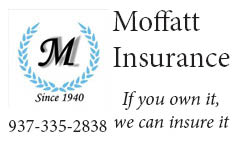The completion of the first e-Recording of a deed transfer/conveyance through the Miami County Recorder’s Office in late 2015 wasn’t a flashy event, but a key advancement in the e-Recording process.
The recorder’s office worked with Evans Tile Agency in Tipp City to carry out the transfer.
“We are the first county in this area that is doing the full service electronic recording,” said Tim Evans, president and CEO of Evans Title. He said the electronic deed transfer and recording could be done using a scanner, Internet connection and an e-Recording vendor.
Jessica Lopez, county recorder, said the e-Recording process was initiated following visits to other counties that had initiated e-Recording.
The use of the process has made a difference not only in office workflow but also for those submitting documents for recording and those using the office in search of information, she said.
The purchase of land records software allows the office to digitize and archive each document submitted either in paper form or electronically. The system first was used for about a year for documents before the next step involving the deed/transfer, which requires involvement by other county offices.
Lopez said the office deals with several e-Recording vendors who provide a portal so companies can submit documents electronically that previously were hand delivered or sent by certified mail or courier service.
“We take each document (as it arrives) and treat it the same as a paper document walked in,” Lopez said. That would include opening the document to make sure it meets standards for recording and other requirements. The e-vendor receives a message back with the fee amount along with the recording date/time and a unique document number.
“It saved the submitter the worry of, ‘Did it get lost in the mail?’ and the cost associated with certified mail or courier system. On the county side, we have the benefit of not having to open the envelope, take it out, scan the document, a lot of physical handling,” Lopez said.
The office handles up to 30,000 documents a year, she said adding paper also is saved and everyone who needs a copy has one.
“My intention with the process was to make things more efficient, more economical and more streamlined,” she said. The walk in of document also continues.
The next step in the e-Recording was finalized in the fall with addition of more county offices to the recorder’s electronic process. The addition of the county engineer (map department) and auditor’s offices provided the ties needed to add e-Recording to complete the process of transferring ownership and recording of a deed and mortgage.
Some documents including the deeds need to have legal descriptions checked by the map department and go through a transfer at the auditor’s office before the final recording. Software to accommodate the conveyance was added for around $3,500.
“The engineer and auditor jumped on board and have become a part of the process,” Lopez said.
That process was added around the time new regulations involving the property closing process went into effect through the federal Consumer Finance Protection Bureau. The regulations designed to protect consumers from bad lending include requirements for document submission for recording within three days of a closing.
“A lot of local title companies and banks have a personal representative. They have that value added service, but for those who don’t, we don’t want to put people put in the position of being fined or penalized,” Lopez said.
Evans said the e-Recording also leaves a good electronic trail of documents that are easier to store. His company does business primarily in a 15-county area from Allen to Butler. “We are excited about it. It is a big step forward,” Evans said.

